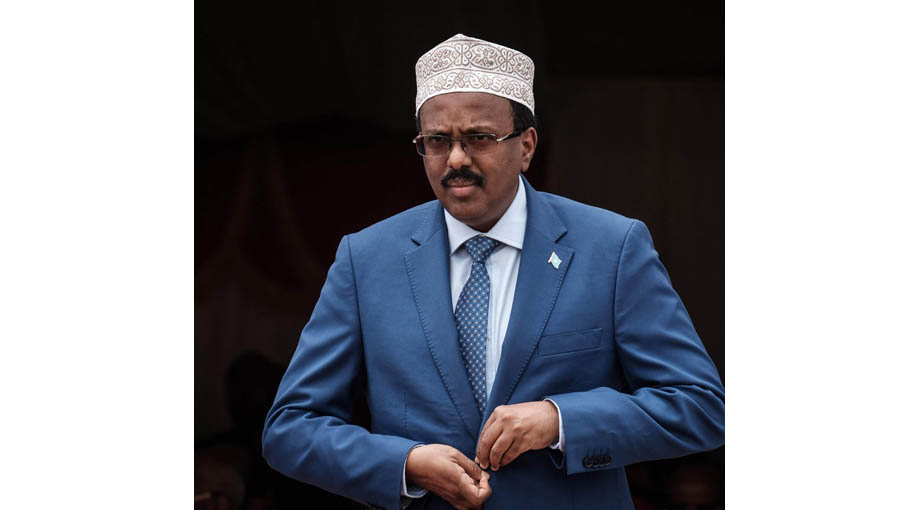Somalia leaders strike deal on long-delayed election process

Somalia’s president and prime minister say they have struck a deal to speed up the process for long-delayed elections, ending their simmering feud which threatened to plunge the country into a fresh crisis.
Somalia was meant to choose a new president this month, ending a complicated indirect election process that would also select a parliament.
But that was halted amid a dispute between President Mohamed Abdullahi Mohamed and Prime Minister Mohamed Hussein Roble over who would head the National Intelligence Service Agency.
The two leaders had each appointed a different candidate to replace the head of the agency, who was suspended last month after an agent went missing.
“The leadership has agreed to accelerate the election process by calling on the federal member states to start the election of the [lower house of] parliament in the next couple of weeks,” a statement by the two leaders said late on Thursday.]
Under the agreement, the president’s appointee will now take up the post in an acting capacity, while the man chosen by the prime minister will be given a different role as a state minister.
A separate disagreement over who would head the internal security ministry was also resolved, according to a government spokesman.
Somalia has had only limited central rule since longtime leader Mohamed Siad Barre was toppled 30 years ago, and has never conducted a free election.
Under the indirect electoral process, regional councils are meant to choose a senate, which could be completed this week.
Clan elders will then pick members of a lower house of parliament, now set to take place next month. The parliament will pick a new president at a date that has not yet been set.
Roble and Mohamed clashed in April, when the president unilaterally extended his four-year term by two years, prompting army factions loyal to each man to seize rival positions in the capital, Mogadishu.
The confrontation was resolved when the president put Roble in charge of security and organising the delayed elections.





